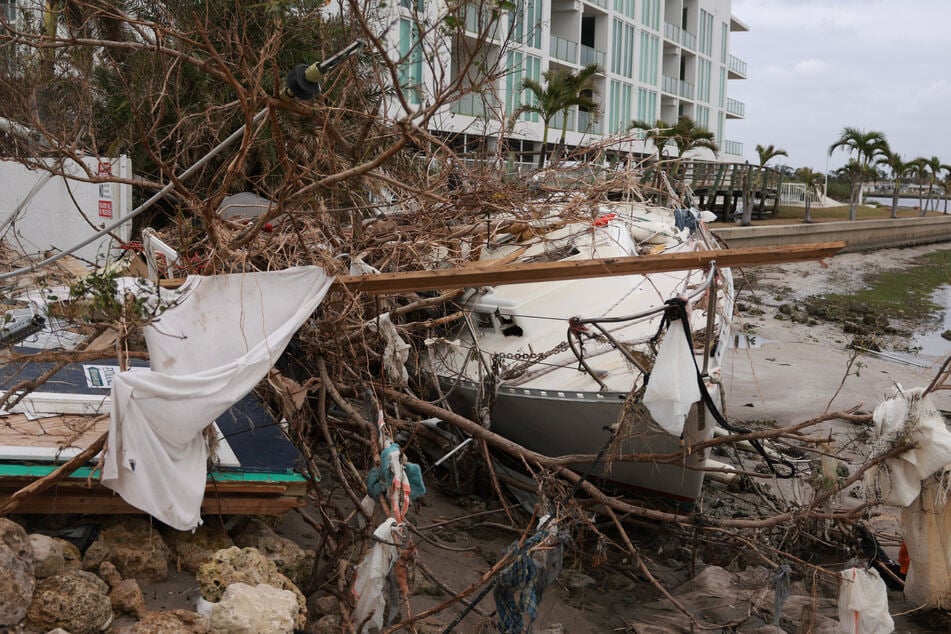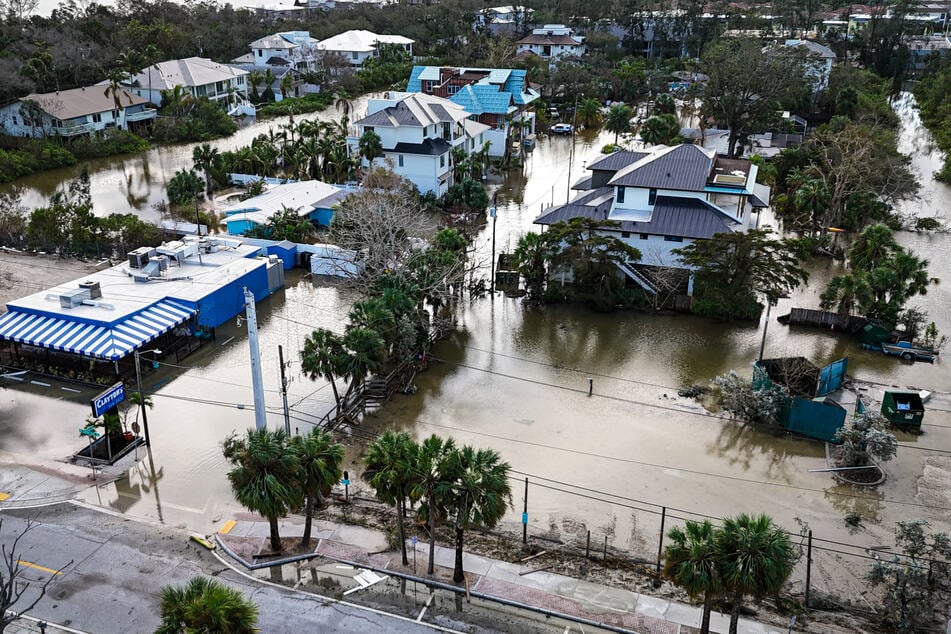Hurricane Milton: Floridians refuse to leave "paradise" after deadly storms
Siesta Key, Florida - Florida resident Kristin Hale weathered Hurricane Milton tired and scared, but like many of her fellow Floridians, she refuses to move away – even after a second hurricane has hit the state in as many weeks.

"You persevere when you live in Florida," the 42-year-old said as she moved tree branches and other debris out of the restaurant she runs on Siesta Key, an idyllic island located between Sarasota Bay and the Gulf of Mexico on the state's west coast.
"When you live in paradise, that's what you pay for," she added. "We have some of the best beaches in the world, they're just absolutely stunning. We are blessed."
Even though the southeastern state is highly vulnerable to catastrophes caused by climate change, including rising sea levels and stronger hurricanes, nothing seems to dampen its appeal.
The state is the third most populous in the country, and it attracted the second highest number of new residents in 2023, behind only Texas, according to US census data.
The frequent natural disasters – Milton was the third hurricane to hit Florida in the past two months after Debby and Helene – have also sent home insurance premiums skyrocketing.
In 2023, homeowners paid an average of $10,996 to insure their residences, 421% more than the national average, according to data from Insurify, an insurance comparison firm.
None of that seems to matter, though, when compared with the appeal of living in a sunny climate near the ocean.
Florida residents find resilience after double whammy of hurricanes

"Being near the water is just something special. Nothing can replace that," said Victoria Thoma, a resident of Sarasota who went to inspect the damage on nearby Siesta Key, where Milton made landfall.
The 49-year-old Russian woman settled along Florida's west coast a decade ago after living in the northeastern state of Connecticut. She said she is happy where she has made her home with her husband and their eight children.
"This place is magic," she said.
Nearby, residents who evacuated before the storm were slowly returning to see how their homes fared.
The small town of roughly 5,000 people was hit hard by the dual hurricanes.
Streets were flooded, trees knocked over, and piles of items destroyed during Helene were strewn about, given there was little time to clean up between storms.
At the beach, Matt Fueyo explained he had no intention of leaving the Florida coast, just like his neighbors.
"I've traveled the world, been to so many other countries, and seen some beautiful places. But this is unique," said the boat rental company owner. "Siesta Key is very powerful. There's a good energy here, there's good people here. This is a very special place."
Across the bay in Sarasota, Chicago resident Andy Johnson looked out at a yacht that was left stranded in the harbor due to Milton. He had come to visit family a few days ago when he learned of the hurricane barreling toward the state.
"It was very terrifying for a guy who's never been through anything like this," he recalled.
"But people here are strong. And even with all this, as my stepbrother says: 'It's better than shoveling snow from up north.' So they just rebuild every time."
Cover photo: JOE RAEDLE / GETTY IMAGES NORTH AMERICA / GETTY IMAGES VIA AFP

